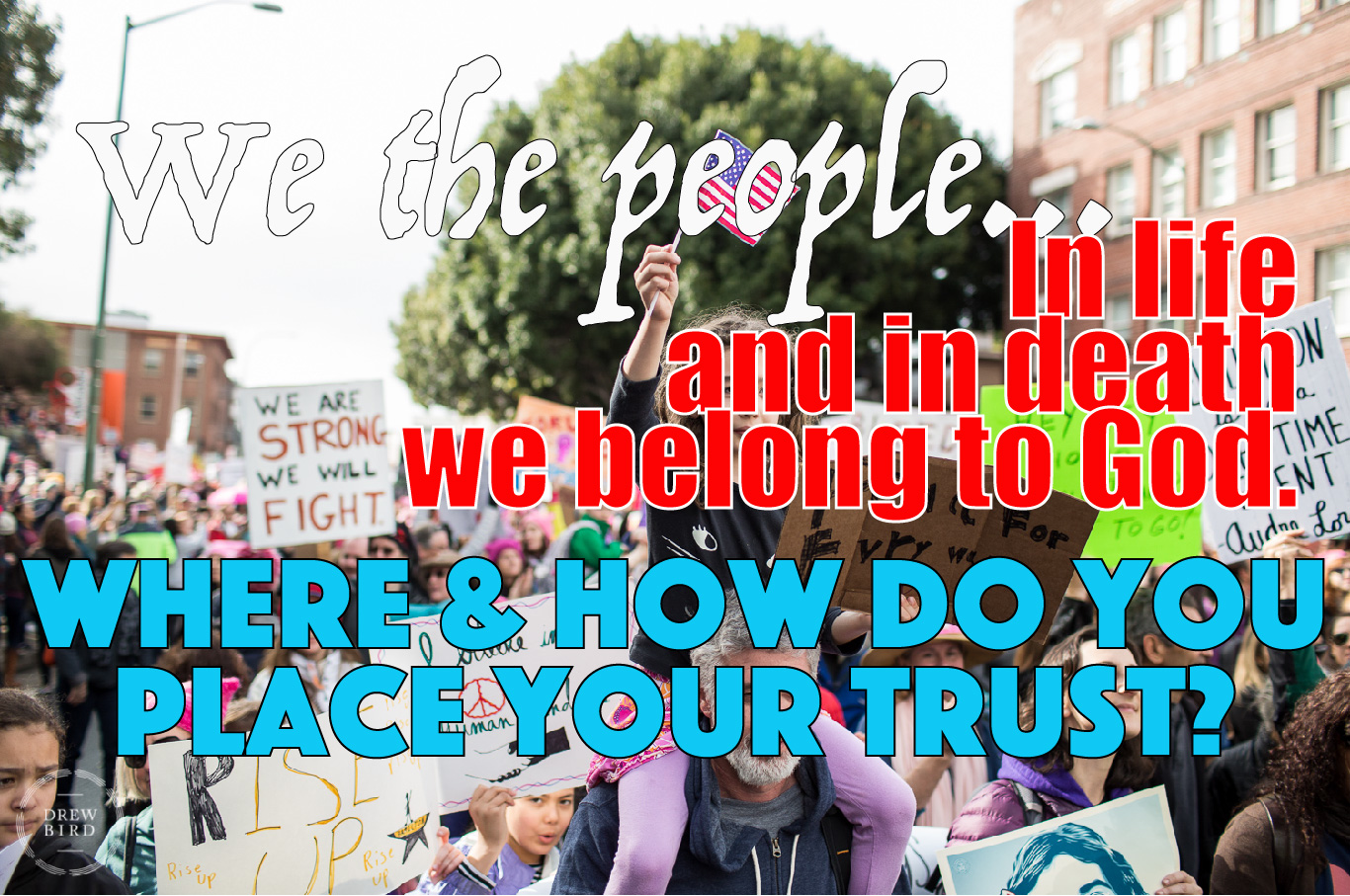
The Constitutional Preamble & the Brief Statement of Faith
A recent Time Magazine article asserted that “A Majority of Americans Already Cite 2020 Election as ‘Significant Stressor’ in Their Lives.” But you probably don’t need the media to tell you that. You may encounter it every day throughout life in our city and nation, in your relationships at work, at play and in your family.
This week marks a year until the 2020 presidential elections: a period of time which promises to be stressful, divisive, verbally violent, and anxiety-producing. How do you decide how your faith forms your ethical decisions, moral stance, political perspective, and personal commitments? The word politics comes from the Greek word polis, meaning city-state or city. It points to how we live together. According to the Greek philosopher Plato, the best form of government of the polis is the one that leads to the common good.
What does it mean to be committed to following Jesus as the center of our lives, our the polis, as well as being American citizens? How – if it is different – does our choice to live together as the Church in but not of the world, gathered in Christ invite us to live out that community as a testimony to the polis?
This week we’re reflecting a year out from the elections via lectio divina, or “sacred reading” on the statements at the root of our nation (the Preamble to the US Constitution) and our church (the Brief Statement of Faith of the PCUSA).
The Preamble explains the purposes of the Constitution and defines the powers of the new government as originating from the people of the United States. It establishes that the people of the nation are forming the government with these specific goals in mind, but then it says one important thing: the people “…do ordain and establish this Constitution for the United States of America.” Not the views of a majority or those in power, but the Constitution. In this way, all are protected, not just a simple majority. It puts into words the ideal of Rousseau’s Social Contract when he posits that in order to be governed, the governed give up certain elements of their individual sovereignty, otherwise it would be either anarchy or tyranny as a result. The Preamble, written in 1787, is important not in what it creates, but in what it promises. (credits)
The Brief Statement of Faith is a statement of faith adopted by the Presbyterian Church (USA) in 1991 as part of its Book of Confessions. It was commissioned in 1983 when the two largest Presbyterian churches in the United States reunited to form the PC(USA) [our church].
Questions for the practice of Examen & Contemplation
- What word, phrase or image grabs your attention?
- How does each document formulate the common good?
- What invitation to do you hear in this word for you / us?